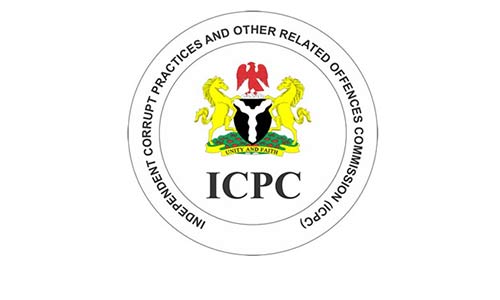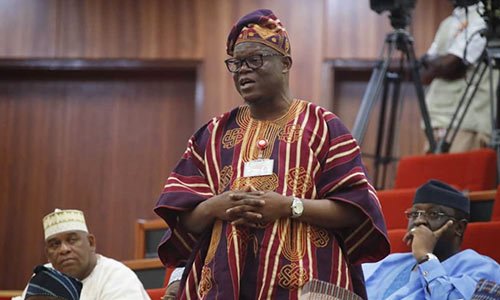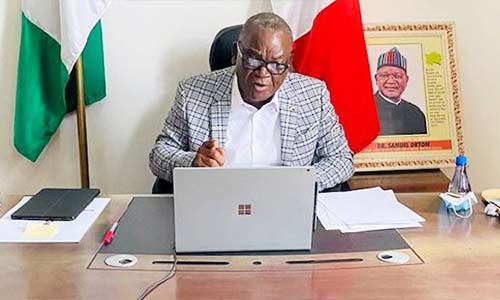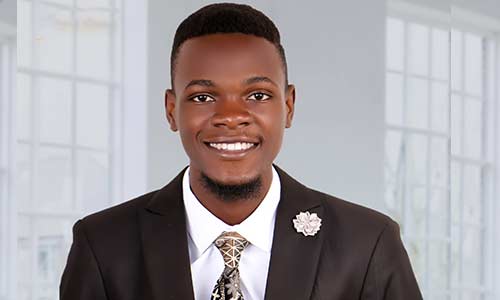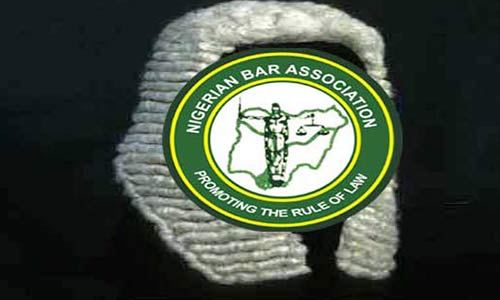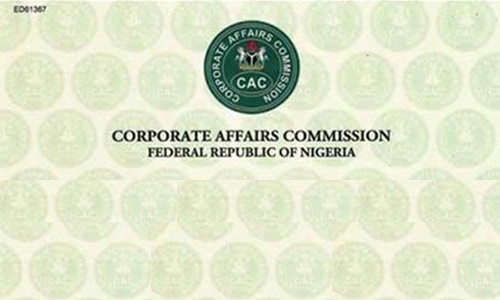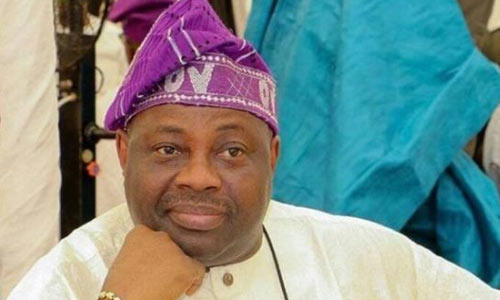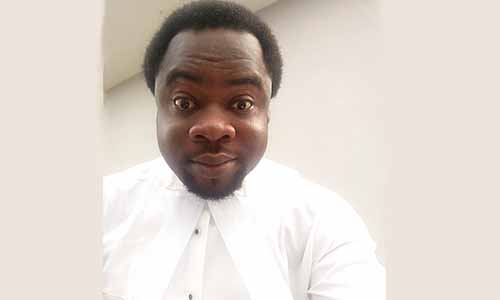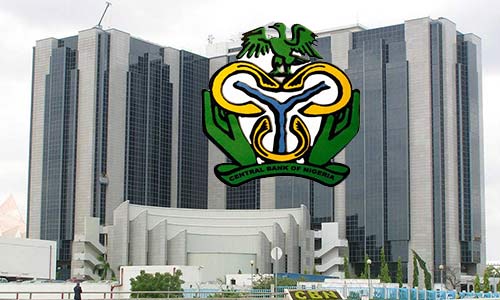BY DELE MOMODU
Fellow Nigerians, please permit to offer a quick apology. I had planned to conclude Chief Bode Akindele’s serialised tributes this week, but man proposes, and God disposes. A matter of urgent national importance necessitated this sudden change of plans.
Let’s now go quickly to the latest bad news from Ghana on how Nigerian traders are being maltreated. I will rely heavily on the well-scripted release by Alhaji Lai Mohammed, Minister of Information, and dissect the numerous issues and thorny problems that we’ve been faced with and continue to endure, as Nigerian citizens, as if we are orphans. But before I do this, let me confirm and reiterate that this resentment against Nigerians did not start today. Despite our almost unbreakable (I will explain) ties to Ghana, we always experience these altercations from time to time. Once upon a time, in 1969, to be as precise as necessary, Nigerians, mainly of the Yoruba race, were sacked from Ghana. It was such an emotional and tumultuous period for those involved. Many prosperous traders suddenly metamorphosed into paupers overnight. I stumbled on heart-rending pictures of some of the returnees last night as I was researching this piece. No one would expect such amongst brothers and sisters as we claim to be. The scars remained.
So, when Ghana started facing its own difficulties, they fled to Nigeria. Interestingly, some tribes in Ghana trace their origins to Nigeria. The Ga, for example are believed to have migrated from Ile-Ife, the cradle of civilisation. Ghanaians came to Nigeria for various reasons. Nigeria was prosperous. Nigeria had a stockpile of commodities that were critically lacking in Ghana. We had many Ghanaian teachers, shoemakers, tailors, housekeepers and others. I was old enough to make Ghanaian friends on the campus of University of Ife (now Obafemi Awolowo University, Ile-Ife), including with lecturers from that country and they felt very much at home.
Then came 1983, our Federal Government, led by President Shehu Shagari, took a most devastating decision. Shagari issued an order by executive fiat asking illegal immigrants to vacate the country. The Big Brother was tired of playing its avuncular role. The world was shocked into stupor. That marked the beginning of our renewed perennial wars of attrition. Gone was the camaraderie that had persisted since the dark days of 1969. Only to be replaced by mutual distrust and fear and anger.⁰ Ghanaians left in droves, but not without feeling bruised and bloodied. This exodus gave birth to the proverbial “Ghana Must Go” bag! While the Nigerians might have forgotten their own experiences of 1969, I doubt the Ghanaians ever forgave or forgot the 1983 experience. Not many Nigerians even remember today that it first started from the old Gold Coast.
That is the background to what has snowballed into another round of skirmishes today. I have spent substantial periods in Ghana in the last 25 years. I have made fantastic friends, and interacted with wonderful Ghanaians, including all the Presidents and Vice Presidents, since the time of President Jerry John Rawlings to date. I mentor many students, and even TroTro drivers (like our own Molue Drivers) easily recognise me as a Nigerian Chief and somtimes call me Igwe. I probably know the Ghanaian terrain more than my home country Nigeria. I have travelled by road to all regions of Ghana, up to the farthest places like Bolgatanga and Wa. I enjoy Ghanaian food and often partake in the Saturday rituals of Waakye at Aunty Muni or Nyaniba Estate and Sunday after-service delicacies at Labadi.
I celebrated Ghana to the extent some Nigerians got angry. But I have been a fanatical disciple of the Osagyefo, Dr Kwame Nkrumah, from secondary school and got addicted to his book, Africa Must Unite. I dreamt perpetually about that nebulous unity and I was happy when ECOWAS came into being.
When I first arrived Ghana in 1995, I instantly fell in love with Accra. I saw a city on the rise. Accra prepared me for my eventual journey into exile in England. My Ghanaian friend and Brother, Fritz Baffour, was extremely warm and affable. I promised to come back one day as I boarded my flight into the unknown.
As promised, I did come back to my adopted country. I decided to establish an arm and a leg of Ovation International. It was a big affair, led by then Senate President Adolphus Wabara and Governor Bola Ahmed Tinubu. I later established a weekend publication called the African Star. I also opened the most deliciously delightful and beautiful restaurant, called The House of Ovation in Osu, Accra. However, slowly but steadily, I lost my major investments in Ghana. The hostility from government officials against Nigerians was real. I will need to do a PhD thesis on it.
There was another major problem. The stigmatisation of Nigerians as scammers, drug barons and armed robbers. Ovation International worked hard to showcase our global players, Mike Adenuga, Aliko Dangote, Tony Elumelu, and others too numerous to mention here. As a counterbalance, we did extraordinary stories on Ghanaian women who were married to stupendously wealthy Nigerians. We discovered the women were less cantankerous, but the men viewed us with disdain possibly borne out of seeming competition. They mistake, or better still confuse, our confidence and assertiveness as arrogance. A few Ghanaian men also married our beautiful ladies and we brought these relationships to limelight. The former Secretary General of the United Nations, Dr Kofi Annan and the current President, Nana Akufo-Addo are two high profile Ghanaians who secured two, and one lovely offspring, respectively, from their Nigerian heartthrobs.
Then our banks came, after which we landed Accra in multitudes. The pathfinder was the indefatigable Tony Elumelu with his Standard Trust Bank (later merged with United Bank for Africa, the global bank). Others soon came in strength. They employed and paid some of the best salaries in town. The colours of our banks littered the landscapes of Accra, everywhere you turned. The brightest and biggest Nigerian brand took over the whole of Ghana, courtesy of the Spirit of Africa, Dr Mike Adenuga Jr. He took many Ghanaian icons out of the groves and turned them into Glo Ambassadors. He rebranded the football fans and lit up everywhere with a kaleidoscope of supernatural artworks. The Bull faced challenges but never gave. Who hosted best and biggest events, including the unmatchable GLO-CAF awards, An evening with Wole Soyinka, and others. The razzmatazz was always out of this world and talk of the town.
We came in with our typical American cowboy bravado. But that’s who we are. Our students came in with their dollars. Their teachers labelled them as being too flamboyant and boisterous. Our superstar artists invaded the land. Ghanaians reacted that Nigerian movies should be banned, an impossibility. Ghanaian actors had to travel to Nigeria to blow bigger. As you know, Nigerians love foreigners endlessly. A Ghanaian musical group, VIP, now known as VVIP, even lived in Lagos. We loved them. I invited many Ghanaian artists to the Ovation Red Carol in Lagos and were handsomely renumerated. I also took some of our topmost musicians to Ghana and provided opportunities for collaborative deals. I hosted and launched the Actress Genevieve Nnaji at a swimming pool dinner at the Labadi Beach Hotel. I can go on, ad infinitum.
Let me give more examples. I enjoyed a cordial relationship with Hon. Minister of Tourism, the great Jake Obetsebi Lamptey (RIP), and we supported his tourism plans. We produced crispy pictures of tourism destinations in Ghana and thousands of copies were shipped to foreign destinations. Ghana became a major attraction to high spending Nigerian visitors. I promoted the hotels, like the popular La Palm Royal Beach Hotel, as well as the property markets and got a few Nigerians to buy into Trasacco Valley, Villagio, Airport Residential, Spintex estates and others. Our strategy was to thaw the frozen relationship that seemed to linger eternally. President John Agyekum Kufuor and his wife, Mother Theresa, as I fondly called her, were phenomenal. Kufuor even named one of the longest streets in Accra after President Olusegun Obasanjo in appreciation of his massive support for Ghana. He built on the foundation of friendship between Ghana and Nigeria that was laid by President Jerry John Rawlings and his wife, Nana Konadu Agyeman-Rawlings. I invited Rawlings and his entire family to Nigeria. Governor Babatunde Raji Fashola even hosted Rawlings to lunch at Governor’s Lodge, Marina.
I have taken pains to write this long preamble in order to demonstrate our genuine efforts as Nigeria, the giant of Africa, at building powerful bridges. I was aware of all that Nigeria did to support Ghana in its moments of need, but some Ghanaian politicians have never wasted any opportunity to throw tantrums at us. How can any country treat a country that contributed this much as a liability? One Minister once threatened me that I would only put my restaurant close to his house, over his dead body. Ironically, he was away in hospital the day we opened. I had secured the support of our then High Commissioner, Senator Musiliu Obanikoro, and he was solidly with me, but my potential assailant was nowhere to be found. I thank God we opened without anyone’s dead body.
I was aware of how most African leaders often crisscross Nigeria in search of election donations but soon become unreasonably cocky on attaining power and do nothing in return for their generous benefactors. Nigeria has really suffered in this Africa. But I think time has come now to stop being Mumu. We must set pre-conditions, spell out deliverables and even sign MOUs before we support African countries and leaders who often come cap in hand. Even Santa Claus deserves some respect. You can’t like my money and hate my face. Ingratitude is a sin even in the Holy Bible. It is one of the reasons I loved the humility of the late President John Evans Atta Mills. As soon as he won his elections, he travelled to Nigeria to personally thank his benefactor and spiritual mentor and Guru, Prophet Temitope Balogun Joshua and he later invited another illustrious supporter, Nigerian businessman, Araba Jimoh Ibrahim, to his Inauguration and offered him a banking licence. This is a decent thing to do.
I was therefore shocked to my marrow to discover that the rapprochement was no longer holding. I simply couldn’t believe the ballistic tweets recently fired from the Foreign Minister of Ghana, Hon. Shirley Ayorkor Botchway, from a newly opened Twitter account, just to justify the high-handedness against Nigerians in Ghana which shattered the illusion of peace and harmony that had prevailed for some time. She kept referring to a deliberate Act of government designed to eliminate Nigerian traders in particular. It is like hiding behind one finger. I believed these thinly veiled insults must have triggered the powerful response issued by Alhaji Lai Mohammed yesterday. We must continue to tell those who take us for granted that the sluggishness of a tiger, periodically, is not out of cowardice. We love every African, but this must not be taken for timidity. I have the pleasure of reproducing the clear message that gave me hope yesterday… Please, enjoy…
“Nigeria Will No Longer Tolerate Harassment of Its Citizens in Ghana.
The Nigerian Government is deeply concerned by the incessant harassment of its citizens in Ghana and the progressive acts of hostility towards the country by Ghanaian authorities and will no longer tolerate such.
In this regard, the Federal Government is urgently considering a number of options aimed at ameliorating the situation.
The Federal Government has been documenting the acts of hostility
towards Nigeria and Nigerians by the Ghanaian authorities. These include:
Seizure of the Nigerian Mission’s property located at No. 10, Barnes Road, Accra, which the Nigerian Government has used as diplomatic premises for almost 50 years. This action is a serious breach of the Vienna Convention.
Demolition of the Nigerian Mission’s property located at No. 19/21 Julius Nyerere Street, East Ridge, Accra, another serious breach of the Vienna Convention.
Aggressive and incessant deportation of Nigerians from Ghana. Between Jan. 2018 and Feb. 2019, 825 Nigerians were deported from Ghana.
Closure of shops belonging to Nigerians. Over 300 Nigerians shops were locked for four months in Kumasi in 2018; over 600 Nigerian shops were locked in 2019 and, currently, over 250 Nigerians shops have been locked.
Residency Permit requirements, for which the Ghana Immigration Service has placed huge fees, far higher than the fees charged by the Nigerian Immigration Service. These include the compulsory Non-citizen ID card (US$120, and US$60 for yearly renewal); Medical examinations, including for Covid-19 which is newly-introduced (about US$120), and payment for residency permit (US$400 compared to the N7,000 being paid by Ghanaians for residency card in Nigeria)
Outrageous stipulations in the Ghana Investment Promotion Centre Act. When the Act was initially promulgated in 1994, a foreigner is required to invest at least US$300,000 by way of equity capital and also employ 10 Ghanaians. This Act has now been amended twice, with the 2018 GIPC Act raising the minimum capital base for foreign-owned businesses to US$1m. Though targeted at foreigners, it seems GIPC’s definition of foreigners is Nigerians. The GIPC Act also negates the ECOWAS Protocol.
Media war against Nigerians in Ghana. The negative reportage of issues concerning Nigerians resident in Ghana by the Ghanaian media is fuelling an emerging xenophobic attitude towards Nigerian traders and Nigerians in general. The immediate fallout is the incessant harassment and arrest of Nigerian traders and closure of their shops.
Harsh and openly biased judicial trial and pronouncement of indiscriminately long jail terms for convicted Nigerians. There are currently over 200 Nigerians in the Nsawam Maximum prison in Ghana alone.
The Federal Government will like to put on record the fact that even though over 1 million Ghanaians are resident in Nigeria, they are not being subjected to the kind of hostility being meted out to Nigerians in Ghana.
Also, Even though the main reason given for the seizure of Federal Government property at No. 10, Barnes Road in Accra is the non-renewal of lease after expiration, the Ghanaian authorities did not give Nigeria the right of first refusal or the notice to renew the lease.
By contrast, the lease on some of the properties occupied by the Ghanaian Mission in Nigeria has long expired, yet such properties have not been seized.
Nigeria has time after time demonstrated its fidelity to the long cordial relations with Ghana. But indications, especially in recent times, are that Nigeria’s stance is now being taken for granted and its citizens being made targets of harassment and objects of ridicule. This will no longer be tolerated under any guise.
In the meantime, the Federal Government wishes to appeal to its citizens resident in Ghana to remain law abiding and avoid engaging in self-help, despite their ordeal…”
Pendulum By Dele Momodu, Email: [email protected]

